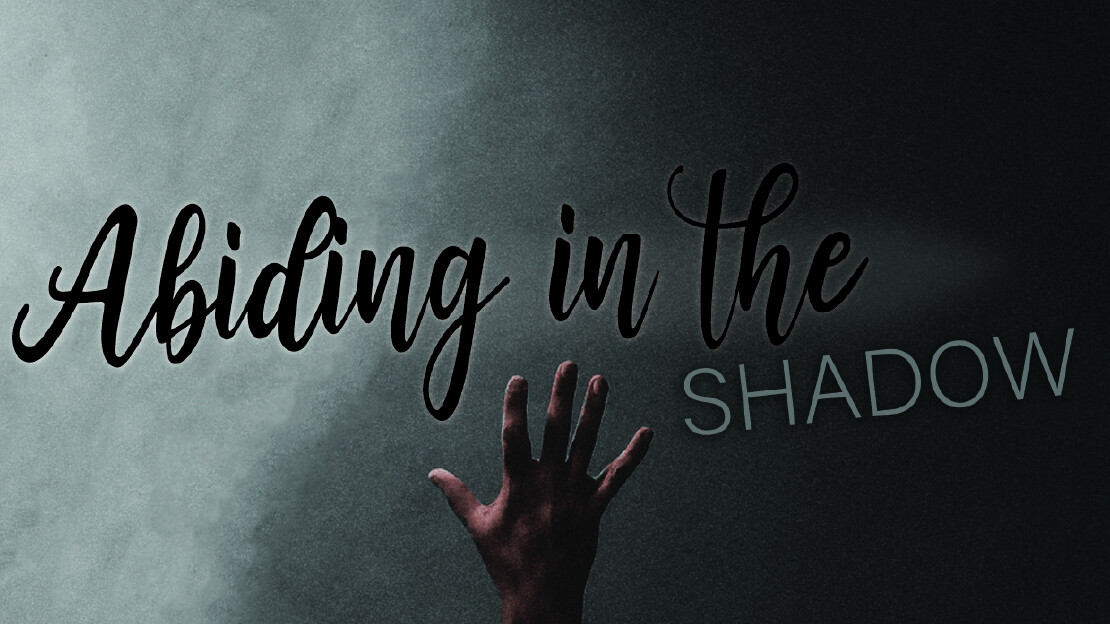

Reading Mark's gospel is like watching a train wreck. It's a trip that begins as the train passes through sunny meadows and scenic vistas. Jesus bursts on the scenes declaring the arrival of God's kingdom, the long-awaited golden age that would bring Israel's troubled history to glorious climax. And the authority he wields as he announces this good news is astonishing. He heals not simply minor maladies but chronic illnesses, leprosy, withered limbs, paralysis. He asserts his authority over nature - multiplying bread and walking on water. More than that, the evil spiritual powers that distort the minds of men and women flee before him. But through all that, there are signs that all is not well - that the train is coming off the rails, at least when it comes to the disciples. Throughout the gospel the disciples repeatedly misunderstand, repeatedly fail in their discipleship. And during that last crucial moment, their great boast that they would never forsake Jesus proves empty and, and not just Peter, but all the disciples run away in fear. Mark alone tells us of one disciple whose abandonment of Jesus was so complete that he preferred to run naked into the night than be identified with one who would soon hang naked from a cross.
As the crucifixion comes to an end in ch. 15, the only hope we have for these would-be disciples rests with the women. They alone remain steadfast in their devotion to Jesus, standing vigil as Jesus slowly dies a tortured death, the humiliation of his nakedness all the greater for their presence. But as the final verse of Mark shows, even these female followers fail, overcome by fear as the angel tells them that Jesus has risen. Throughout the gospel, people have been told not to tell what they know about Jesus because to know something without knowing everything can be worse than knowing nothing. But once Jesus is risen, the gag order is lifted. Not only is it now possible to tell, they must tell. That is what the angel tells the two Marys as they discover the empty tomb: “Go and tell.” But Mark leaves us – intentionally, I think – with the worrying possibility that they did not: “Trembling and bewildered, the women went out and fled from the tomb. They said nothing to anyone, because they were afraid” (Mark 16:8). And with that the gospel ends. The train has come fully off the rails. As we read the final words of Mark we gaze at the debris – the debris of fear and failure and faithlessness into which even the most devoted fall.
Why do they fail? It cannot be because they feared the Roman authorities. They had very openly remained with Jesus until the end. However much fear of Roman power and of the Jewish leadership may have led the male disciples to flee that cannot be the reason why these women fail and fear. So why? Why do they fail? What do they fear and why?
We've seen glimpses of an explanation already in Mark. Mark's gospel is from first to last a gospel of God breaking through and breaking into human affairs and human lives. It begins with the ripping open of the heavens and a voice declaring Jesus to be God's son. It ends with the ripping of the temple veil. The God of Mark's gospel is a God whom neither heaven nor the temple can contain. He is breaking through all that separates us from himself. And this reality is terrifying. As God breaks into human affairs and lives, the response is one of terror.
- In ch. 4, Jesus calms the sea, and his disciples are afraid
- In ch 5, Jesus commands a thousand demons, and the people fear him and ask him to leave. A woman suffering from a chronic hemorrhage touches Jesus' garment and is healed and her response is one of terror - not because she fears being found out but because she “knew what had happened.”
- In ch. 6, Jesus walks on water and again the disciples are terrified.
- In ch. 9, Jesus is transformed, transfigured before their eyes and the disciples are scared out of their wits.
As a boy growing up I always wondered why the people in these stories were afraid. Like a lot of boys, I imagined that I was fearless. But I now suspect that I hadn't really grasped what was happening. In each of these instances, people are confronted with a reality so fierce and fearsome, so untamed and untamable, so awesome and otherworldly that they simply have no categories to deal with it.
But what happens at the tomb takes these terrifying encounters with the presence of God to a whole new level. When the women are told that Jesus has been raised, the reality that breaks in on them is the reality of a power that is greater even than the power of death. It is the power of life itself. The life that creates and animates and sustains every living thing is not shut up in the heavens, not confined to a temple, no longer safely sealed behind a stone. That life has broken out and is now at loose in the world. And that is a power the women instinctively fear more than death, for the simple reason that the power of life is greater than the power of death.
In Mark, would-be disciples fail for all kinds of reasons because they fear all kinds of things. They fear loss of status, loss of wealth, they fear pain and loss of life. But the most fundamental reason that disciples fail is that they cannot deal with God on his own terms. They cannot deal with a God whose claim on them is unqualified, whose holiness is uncompromising, whose freedom is unassailable. They cannot deal with a God who dies a humiliating death and in doing so demonstrates that suffering, humiliation, shame and even death reveal what it means for God to be God. The most fundamental reason that our faith falters is that we are afraid of God.
As readers of Mark we have known from early for some time what the followers of Jesus had been told by Jesus but were too afraid to accept - that he would die and be raised again. Perhaps we expected that with Jesus’ resurrection, the lights would finally go on for his followers and everything will be different. And yet, it seems, at least initially that nothing has changed. Those who seemed to have the greatest love for Jesus – the women who stood by Jesus even in death – fall prey to fear as well. The angel has told them not to be afraid, but not even angelic reassurance keeps fear at bay before this ineffable and alien power.
Mark makes no attempt to persuade us that the resurrection is true, no attempt to ply us with evidence so compelling that we simply have to accept it. Instead, he confronts us with the stark fact of our failing and fear and leaves us with nothing but God, nothing but the One who has the power of life itself. He exposes our fear of God and offers us God. He shines the light on human frailty and fragility so that we can see the One from whom all our instincts tell us to flee. He is the God who has breaks through not just the heavens but through the fear and the pain and the disappointment and the failures of our lives and gives us himself. In giving his life, he gives us his life. In taking up his life, he breaks through death and into a new world. And he takes us with him.
In the past few weeks, many of us have been gripped by fear. It would be straightforward to blame the fear on a virus that has thus far proven remarkably adroit at destroying our sense of security and remarkably resistant to the weapons with which we protect our sense of security -technology, expertise, economic strength. But that would be an illusion. As Christians, we may not wish to blame God for the virus, but neither would we want to worship a God who was powerless before it. We may not wish to interpret the virus as an instrument of God’s wrath, but neither would we want to say that it has nothing at all to do with him. If you have prayed for God to take it away or to protect you and your loved ones from it, it is because you believe or want to believe that he can. And you would be right. But will he? And there’s the rub. We don’t know. And so, though we try so very hard not to be, the truth is that we are afraid of God.
It is hard but good that Mark makes us feel that. Perhaps it is no bad thing that this virus makes us feel that too. Still I am glad that we have not just one gospel but four, because the other gospels tell us how these fearful women fleeing from the tomb come face-to-face with Jesus. Stripped of everything but God and running in fear from the One who is Life itself, he finds them. And they do what we must do when we all we feel is fear and all we have is the One we fear – they worship him. You have every reason to be afraid. Don’t be afraid. You have every reason to fear. Worship.



